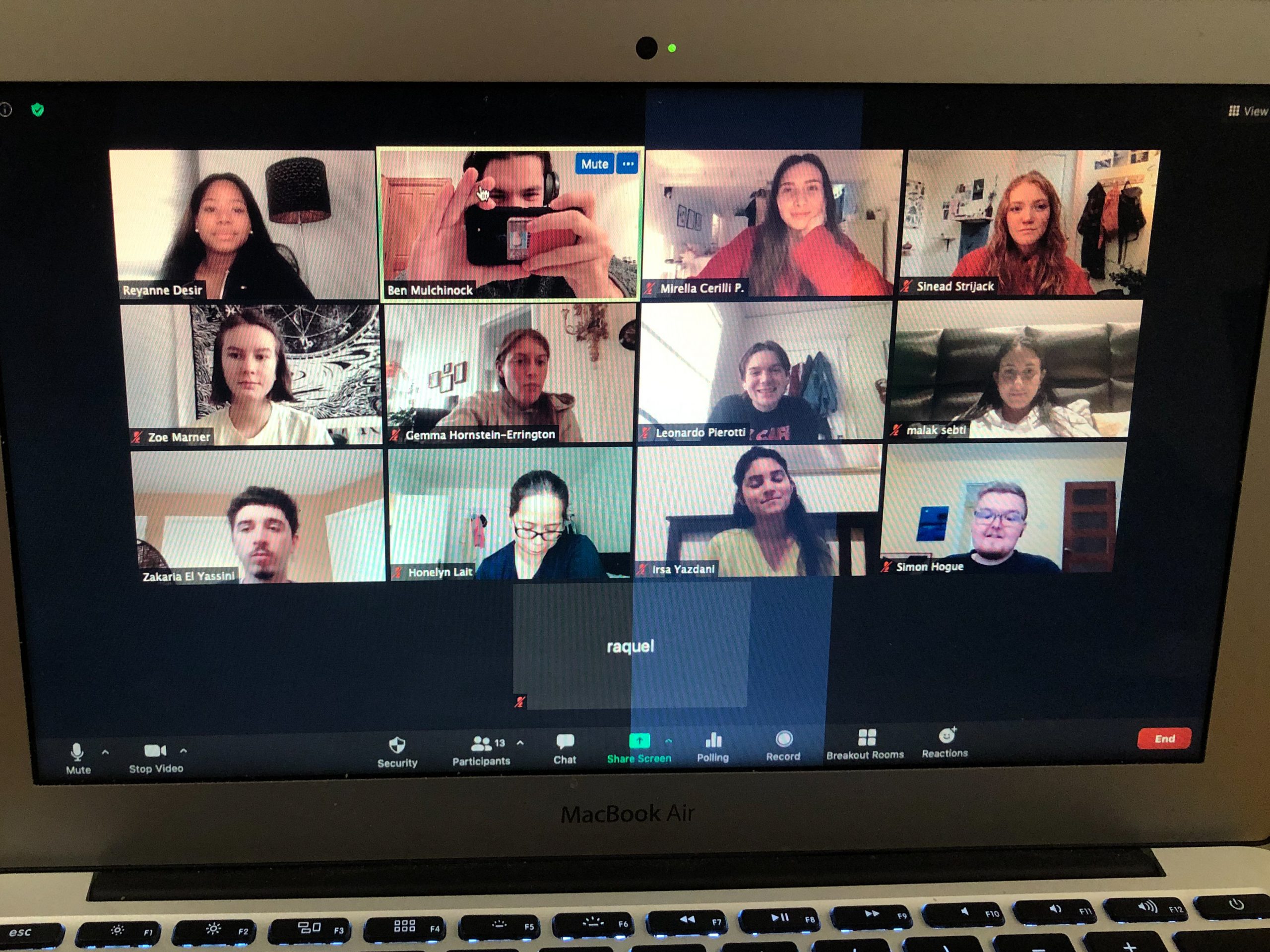For most businesses, selling a product without owning it would be as far fetched as selling a product without promoting it. Yet, for Constellation Records, that’s been the state of business for almost 10 years.
Record sales have not shot through the roof, and none of the founders are anywhere close to buying a mansion on Westmount’s hills. Instead, Constellation co-founders Ian Ilavsky and Don Wilkie have retained their visions about record production, and keep to the same political and ethical guidelines as when they first started out.
“For us, the motivation for doing Constellation was obviously a cultural and esthetic one,” said Illavsky, taking a break in their newly renovated office space. Sitting next to him was his business partner Wilkie, who added, “If anyone thinks about small record labels as cultural endeavours as opposed to businesses, then of course it makes sense that money is not a primary motivator.”
The label originally started out as an attempt to create a rehearsal and concert space in the musically bleak city Montreal was in the late 90’s. While Wilkie and Ilavsky waited for the city’s bureaucracy to approve the plans, they started to put out records. The approval never came, and so the idea of promoting Montreal’s music scene through a performance space fell flat on its face, but Constellation was born, and there to stay.
Constellation’s most successful act in terms of record sales is the alternative band Godspeed You! Black Emperor, who started the orchestral sound now so familiar on the Canadian music scene. To many, no band signifies Constellation as much as Godspeed, exactly because the band built a substantial fan-base without any other promotion than touring. The band announced an indefinite hiatus in 2003, but continues to attract new fans.
For artists signed to Constellation, there are no dotted lines to sign, and no ownership rights to hand over. The label’s only function is to keep their bands’ records in print for as long as the bands desire. That is, however, not the way most record labels operate, even at the smaller levels. For Ilavsky and Wilkie, the lack of progress by indie labels, as opposed to what they see as “the entertainment industry”, has left them questioning how most alternative music endeavours operate.
“Indie rock had, you know, a fairly real promise, and a fairly real oppositional stance to the mainstream music industry,” Ilavsky said, likening it to the way small organic food production relates to agribusiness today. “[It used to be:] clearly understand that there are different ethical priorities; there is a fence here. And more and more now, in the music industry it seems like ‘indie’ means nothing anymore than ‘oh, how did you figure out how to straddle that fence’.”
The record industry is an intricate one to manoeuvre, where only about 10 per cent of all signed artists make a profit. The top five major labels dominate more than 80 per cent of the North American market, while indie labels pick up the remainders. As for advertisement, video rotation, and radio play, the majors are omnipresent.
For Constellation, getting in on the marketing race was never an option. Instead, they focus on putting out records that make enough money to sustain themselves. Likening the marketing race to a “lottery” of fame and fortune, Wilkie and Ilavsky have nothing but disdain for acts that need marketing ingenuity behind them to make it. In general, Constellation sells between 2,000 and 30,000 copies of each record they put out. As a reference, when records sell 50,000 they reach gold status.
File sharing and record buying
Another problem facing record labels, big and small, is technological development. Ever since file sharing became popular, record sales have declined at a steady rate, leaving most labels on the lookout on how to make money from alternative sources.
One of the more popular ways for indie labels to promote their acts is to get paid to do so. A 30 second sound snippet is easily worth $50,000 as a corporate ad or movie soundtrack. But at Constellation, that is a no-go. Even though Ilavsky and Wilkie stressed that legally the artists decide, they said their acts are well aware of their opinions on the subject. “In practice we obviously care about the reputation of Constellation and our own politics and ethics in respect to the music industry. we will basically reserve the right to veto an offer.”
In short, Ilavsky and Wilkie swear off the major label model, where music is like any other product; to be marketed, sold and produced with profit margins in mind. Instead, record buyers are left to find Constellation’s music on shelves, hidden among other CDs and vinyls. They rely on a “small but loyal fan-base” that still buy records in spite of the abundance of easily downloadable material, and their bands tour to build fan-bases as opposed to sit back and wait for recognition.
“We’re attempting to bring some kind of curatorial aspect to what we do in putting a catalogue together,” Wilkie said. “Which is not to say we’re saying ‘No, we don’t want to make money!’ But [it] is far from anything like a primary consideration.”
As for their laissez-faire attitude towards legal rights, neither Wilkie nor Ilavsky are too worried. “Our philosophy from day one has been if a relationship with a band is not working, then screw the ownership aspect of it,” Ilavsky said. “We’re just not interested in working with people where there is no longer a basic understanding based on friendship and trust and generally shared goals.”
And looking at Constellation’s development over the last nine years, it seems they’ve been successful in that aspect. Bands come, record, sell, and dissolve, only to get back with the label with hopes that true music fans will listen this time around.
The founders of Constellation are not sure what path leads ahead in a rapidly changing business landscape. They’ll continue to do what they know best, but are seeking out new ways to promote their message of sustainable small-scale record production. With bands with money getting increasingly larger market shares, Ilavsky and Wilkie said they see the need to spread their message more actively.
For them, they said, the media might be the way to go. Both agree that there needs to be more discussion on the subject of where indie music is going, and what needs to be done to provide a real alternative to the corporate structure.
“It’s either obvious to people that this is a fight worth fighting,” said Ilavsky. “Or it’s not. And I guess that’s the very demoralizing side of the story to me. After 25 years [of indie culture] it’s not obvious to so many people that this would still be a relevant issue.”



